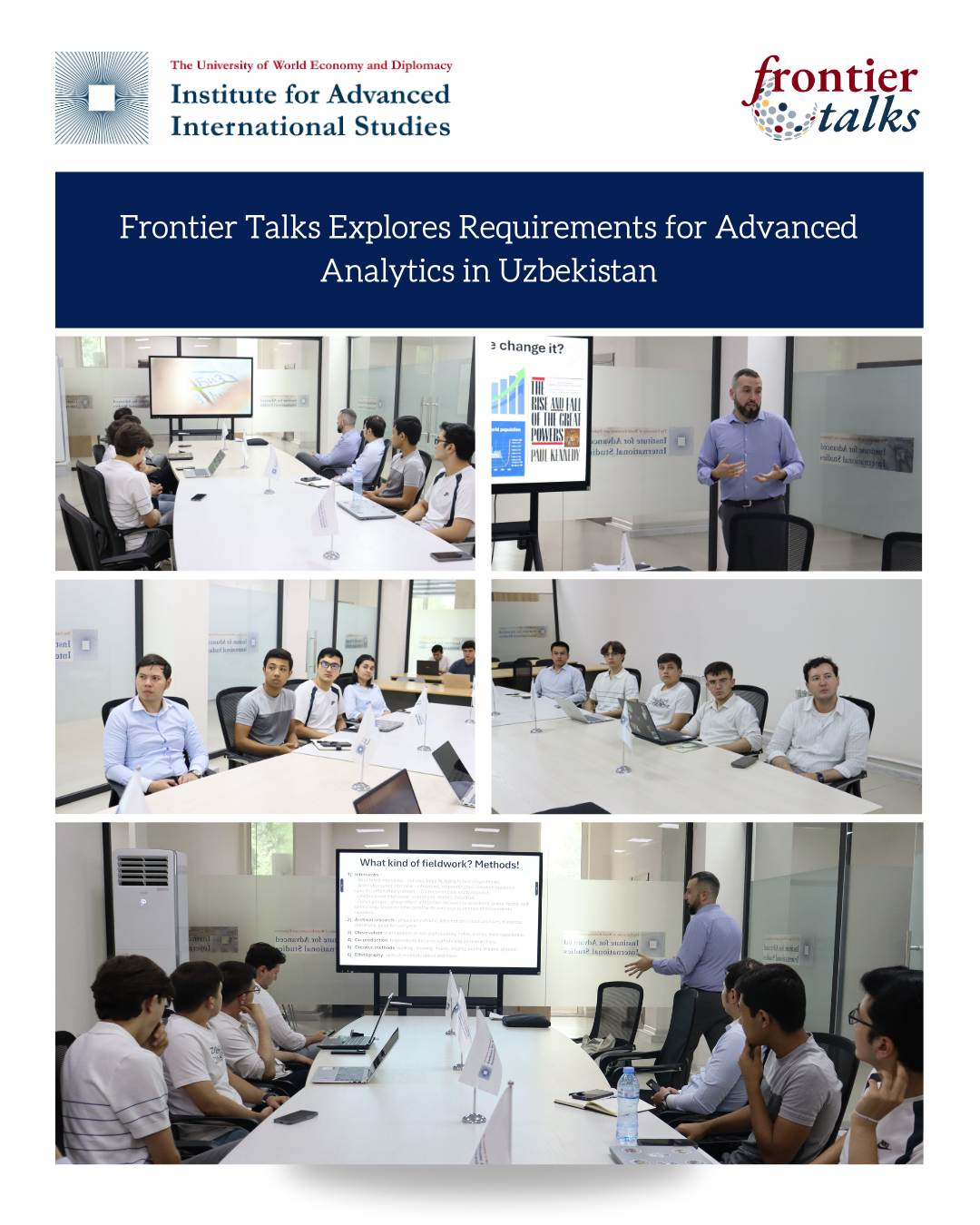
We’ve just hosted our Frontier Talks seminar on Field Research Methodologies with Dr Frank Maracchione of the University of Kent’s School of Economics, Politics and International Relations. Drawing a diverse cohort of early-career researchers, doctoral candidates and policy practitioners, the session offered a comprehensive walkthrough of every phase of empirical fieldwork — from pinpointing robust research questions to navigating ethical clearances in complex environments.
Dr Maracchione opened by emphasising the importance of grounding theoretical frameworks in lived realities, illustrating how carefully crafted questions can bridge the gap between abstract hypotheses and on-site observations. He then turned to the thorny issue of ethics, detailing best practices for securing informed consent and safeguarding participant anonymity, particularly in contexts where power imbalances or political sensitivities prevail.
The workshop’s core was a hands-on exploration of qualitative techniques. Participants practised semi-structured interviewing and focus-group facilitation, experimenting with prompts and probes designed to elicit nuanced narratives. Simultaneously, Dr Maracchione underscored the value of participant observation, sharing field notes from his Central Asian case studies to demonstrate how seemingly mundane details — body language, spatial arrangements, even ambient sounds — can yield critical insights.
A highlight of the afternoon was an interactive breakout segment in which attendees presented their own fieldwork proposals. Under Dr Maracchione’s guidance, they refined sampling strategies, anticipated logistical hurdles and devised contingency plans for remote or resource-constrained settings. The peer-review format fostered a dynamic exchange of feedback, enabling participants to leave with stronger, more practicable research designs.
Concluding the seminar, Dr Maracchione reflected on the adaptive mindset required for successful field research, noting that flexibility and cultural sensitivity are as crucial as methodological rigour. In line with IAIS’s dedication to capacity building, this Frontier Talks event not only equipped scholars with practical tools but also reinforced a collaborative community of practice ready to tackle the challenges of conducting fieldwork in today’s shifting geopolitical landscape.